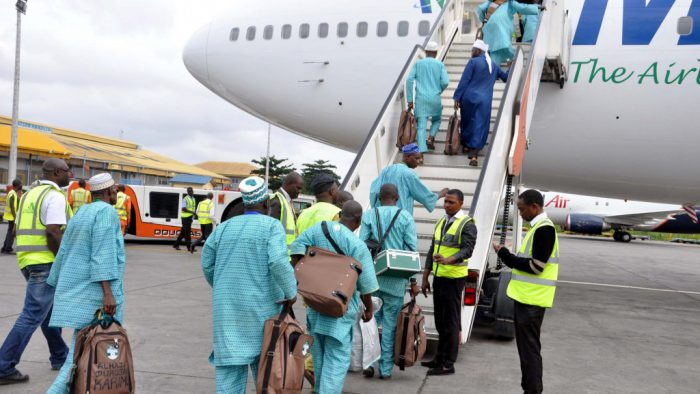The Chief Executive Officer of Raudah Travels & Tours Ltd, Umar Abdulhadi, popularly known as Futi, has called on intending Nigerian pilgrims to strictly comply with the rules and regulations guiding the Hajj and Umrah exercises in the Kingdom of Saudi Arabia.
Speaking in Kano yesterday, Abdulhadi emphasized that non-compliance with Saudi laws not only puts individual pilgrims at risk but also threatens the credibility of licensed travel agencies and Nigeria’s overall image in the international Hajj community.
He said the Saudi authorities have consistently maintained clear regulations designed to preserve the holy pilgrimage’s sanctity, safety, and orderliness.
These include obtaining the appropriate visa type, respecting visa expiration dates, refraining from taking up employment while on pilgrimage, and adhering to designated health and safety protocols.
Abdulhadi decried the actions of a few Nigerian pilgrims who have in the past violated these rules, including overstaying their visas and engaging in unauthorised activities, warning that such infractions often lead to increased diplomatic scrutiny and more stringent visa processes for all Nigerians.
“Pilgrimage is not just a personal spiritual journey; it is also a collective representation of our national identity. When one pilgrim violates the law, it reflects on all of us,” he said.
He stressed that compliance with Saudi regulations should be viewed not as an inconvenience, but as an essential part of the spiritual discipline that Hajj and Umrah demand.
“We must remind ourselves that Hajj is about submission, not just to God, but to order, law, and the sanctity of the land we are visiting. Obedience to these rules is both a religious and civic duty,” Abdulhadi added.
The Raudah Travels boss warned that visa violations and disobedience could lead to mass deportations, bans on future travel, and a loss of confidence in Nigerian travel operators.
He called on fellow stakeholders, religious leaders, and the media to join hands in sensitising prospective pilgrims across the country.
Abdulhadi also commended the ongoing reforms in the Hajj sector, including efforts by the Nigerian Hajj Commission (NAHCON) to improve coordination and compliance standards, but noted that more grassroots awareness is needed.
“Our goal is to ensure that every Nigerian pilgrim enjoys a smooth, dignified, and spiritually fulfilling pilgrimage. But that will only happen when all of us play our part by obeying the rules,” he concluded.
Saudi Arabia hosts millions of pilgrims annually during the Hajj and Umrah seasons and continues to emphasise strict adherence to its policies to ensure the safety and sanctity of the holy sites.
Nigerian pilgrims have historically played a significant role in these religious rites, but recent incidents of non-compliance have raised concerns among authorities.
As the Hajj season approaches, travel agencies, religious bodies, and government officials are expected to intensify education and advocacy campaigns to ensure full compliance among Nigerian pilgrims.









